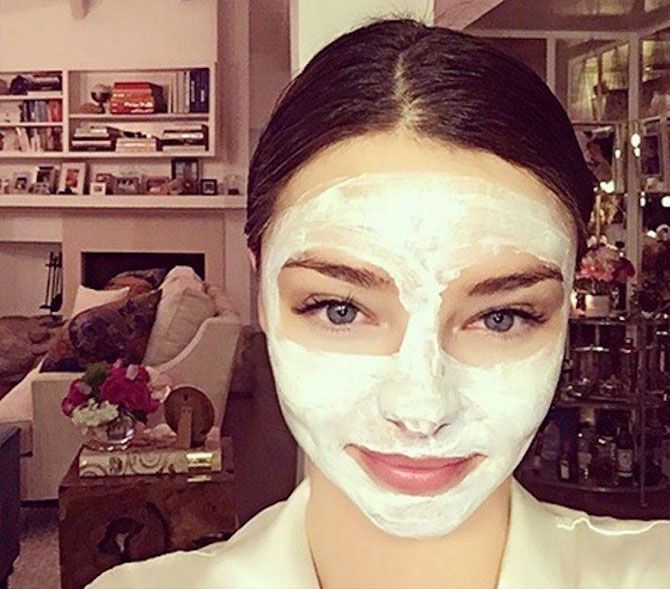Besan (gram flour) can be abrasive to your skin. Using lemon juice can cause severe irritation, says Dr Shital Poojary.

Skin is a major organ of the human body; it acts as an interface with the environment.
It is very closely associated with our sense of self-esteem and well-being.
Interestingly, it is also the most mistreated parts, as it is less understood.
We often read how important it is to eat and drink right to get a glowing, healthy skin.
If you really care about your skin and want to protect it from early damage, here are some important facts you must be aware of:
- Our skin technically starts aging from the time we are born, but ageing changes start to become evident from the mid-twenties.
- Skin restoration from any damage (especially sun exposure) also begins to slow down because of lower regenerative capacity.
- Skin elasticity diminishes as well as the lustre is lost as the connective tissue in the skin degenerates.
- Skin becomes drier and more lines and wrinkles start appearing as we age.
Most common skin problems
Majority Indians suffer from a patchy skin tone and tanning.
Not using a sunscreen regularly and correctly leads to tanning.
Skin damage due to sunlight leads to deposition of excessive melanin (skin's pigment) in some areas, which makes the skin appear patchy and dull.
Acne is another common skin problem which may not always be confined to adolescents but can occur in older women too.
The hot and humid climate in India especially during summers aggravates acne and the skin becomes greasy.
How to protect your skin from damage
Regular use of a good sunscreen right from a very young age prevents pigmentation and ageing of the skin.
If you are acne prone, use a non-comedogenic sunscreen.
Please don’t forget to slather on the sunscreen when on the beach, in the water park or while swimming.
Use a mild face wash to cleanse your skin.The frequency of washing can be increased in summer.
Regular use of a mild moisturiser helps prevent the dryness. In winters a richer moisturising cream or a ceramide based cream can be used
Drink plenty of water or fluids such as coconut water especially during summer.
Smoking should be strictly avoided as it causes premature ageing of the skin.
If acne is aggravated, it is best to pay a visit to the dermatologist.
Do not ignore if your skin develops pigmented patches, it could be melasma or sun induced changes in the skin.
You need to understand that fairness creams are a myth.
No fairness cream can change the complexion if it is inherently dark. It is important to have healthy glowing skin rather than fair skin.
Many of the so- called fairness creams available over the counter in the market contain strong topical corticosteroids such as clobetasol which actually cause a lot of damage to the skin.
Continuous use of the same results in thinning of the skin, excessive facial hair growth and extreme sensitivity of the skin.
In addition, it can cause acne like eruptions as well as aggravation of skin fungal infections
If there is patchy pigmentation of the skin, the dermatologist may prescribe skin lightening creams such as those containing kojic acid, liquorice extract etc.
Use them for an adequate period of time as prescribed by the dermatologist.
A balanced diet
Only from a balanced diet can you get nutrients which are essential for a healthy and flawless skin.
Protein is a key element in our skin. To get enough of it eat eggs, fish or lentils.
Fat is another component. Have two spoons of oil of your choice -- olive oil, rice bran oil, etc., which have Omega-3 and HDL essential for a healthy body.
Consuming ghee and coconut oil in limited quantities only are also good for the skin.
Avoid high glycemic foods, especially foods containing maida and oily, greasy foods.
you must consume unpolished rice, dal, peanut butter, walnut, flaxseed, fish oil, green vegetables and fresh fruits.
Additional supplements
To improve your total health and skin, you can include some supplements on a daily basis.
After consulting a family physician or dermatologist, you can take a multi-vitamin, a fish oil capsule for a dose of Omega 3, calcium, iron, vitamin E, vitamins D3 and B12.
Cosmetics
Those with acne-prone skin should avoid using cosmetics. If necessary to use, then use non-comedogenic cosmetics
Be sure to take the makeup off at night before going to bed.
Avoid using makeup products which are beyond the expiry date, as they can affect your skin.
All natural products need not necessarily be safe.
Please consult your dermatologist to assess your skin type and learn what products are suitable for you.
Avoid using any home care remedies such as besan (gram flour) which can be abrasive to the skin.
Using lemon juice can cause severe irritation.
Simple tips to make your skin glow
- Cleanse your face every night.
- Remove makeup and dirt from your skin with a makeup remover followed by a face wash.
- After a face wash apply a night cream on the face to keep it supple.
- Do not over-scrub your skin with exfoliators containing big granules. This could actually hurt your skin and cause scars.
- Daily skincare regime should include a cleansing routine with the right cleanser, moisturising your skin well and using sun protection.
- Get the correct skin care ingredient even in your cleanser.
- Use a cleanser meant for sensitive skin if your skin is dry and prone to breakouts.
- For acne-prone oily skin choose a face wash with salicylic acid or benzoyl peroxide.
- In case your skin looks dull then discuss with your dermatologist if you can use a face wash with glycolic acid.
- Once your skin is clean, use a good moisturising cream depending on the time of the day.
- Apply sunscreen whenever you are outdoors in day light to protect the skin from UV rays.
- Have a diet that is rich in essential fatty acids as they are responsible for skin repair and overall flexibility.
- Dry or inflamed skin or the recurrent appearance of whiteheads or blackheads can benefit with essential fatty acids.
- Add Omega 3 fatty acids to your diet as it will moisturise your skin. Consume walnuts, flaxseed and peanut butter.
- Aim to get at least seven hours of sleep every night, this is nature's best defense against skin-aging.
Dr Shital Poojary is dermatologist, K J Somaiya Hospital, Mumbai.










